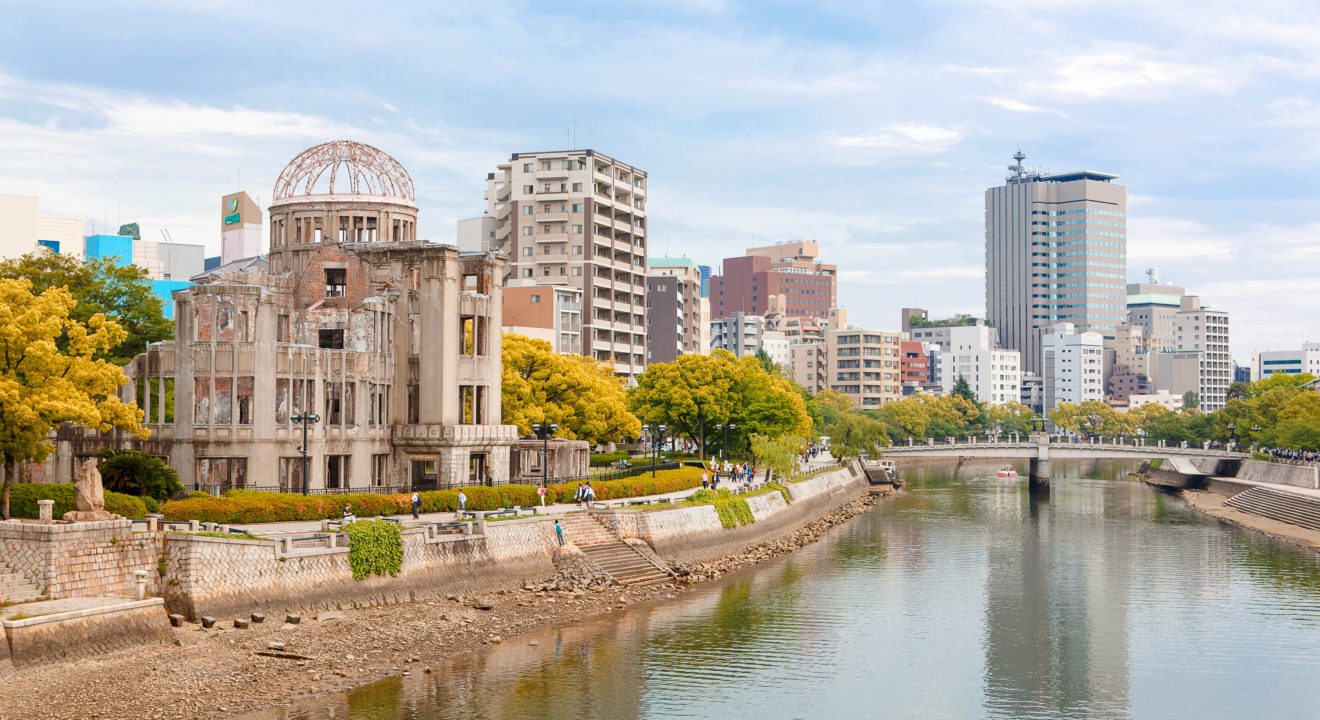Uncategorized March 13, 2017


August 6, 1945, 71 years ago, the US dropped a nuclear bomb on Hiroshima. Approximately 70,000 people were killed, just as many injured and nearly 70 percent of buildings destroyed, and yet today Hiroshima stands as a thriving metropolis. The effects of the bomb should have lasted longer but it didn’t because most of the uranium released stayed in the air.
In May, President Obama became the first sitting president to visit Hiroshima. He notably did not apologize, but formed a new narrative according to Alternet from the administration about the bombings, a narrative that depicts the changing perspective of the American people (34 percent reported in 2015 that the bombs were not justified).
“Mere words cannot give voice to such suffering. But we have a shared responsibility to look directly into the eye of history and ask what we must do differently to curb such suffering again,” said President Obama in his speech.
This is a lesson Hiroshima knows well. Hiroshima has not forgotten despite it’s healthy re-emergence– during last year’s anniversary The Guardian captured the remarkable recovery both Hiroshima and Nagasaki had made with side by side comparisons of photos directly after the bomb versus today. It’s a living memorial of peace. Museums, peace parks, memorials, schoolchildren staging “die ins”. Hiroshima shows the strength and quiet resilience of the victim.
Never forgetting but moving forward. Its physical scars have healed but the memories live on. The bomb survivors stand strong resolute, but also broken, insisting that they stand to showcase the trauma to the world, insuring the world does not forget.
They don’t ask for their lives back for the scars to heal, because they know it will never happen. They don’t seek revenge, they seek remembrance. This is what happens when humanity reaches its darkest. Like a holocaust survivor Hiroshima stands.
In Japan, Hiroshima stands as an excuse for martyrdom according to The Independent. But bomb survivors often oppose Japan’s attempts to excuse their own sins. In Hiroshima approval over the bomb is higher than it is nationwide, according to the Independent.
About a third of the survivors are still alive. They still suffer the most from the bomb. Over 1,000 cancer cases can be directly attributed to radiation released from the bomb, according to PBS. Ninety Four Thousand survivors volunteered to be research participants on radiations effect of cancer. These survivors enabled scientists to confirm acceleration and causation of cancer. Still the research is limited because the radiation exposure happened all at once and it’s harder to determine effects of different levels of exposure.
Beyond their physical ailments survivors experience mental tolls. Tomiko Shoji was 88 in 2014 when she was interviewed by Sarah Stillman at The New Yorker. It took her until she was 88 to speak out about her story. Shoji had no context for the nightmares and mental breakdowns she experienced she didn’t know what PTSD was. When she married her husband felt cheated, not knowing that she was a bomb survivor before they married.
The turmoil Shoji experienced isn’t specific to survivors themselves but can also be passed along to their friends and family. Keni Sabath, Soji’s grandmother began experiencing similar trauma traits to her grandmother after visiting the Hiroshima memorial museum when she was six. Grandchildren fearful to tell love interests about their grandparent’s survivor status. They’re worried her genetics are defective from the radiation, Soji’s family told Stillman.
Hiroshima is luscious, green, rebuilt now. It’s a hub for industry and a “a major cultural center,” according to USA Today. But it hasn’t forgotten. Like any victim any survivor, Hiroshima proves that you can rise from the ashes and teaches us of the value of scars that still hurt to touch. We can come to peace with the trauma without ever forgetting.
Sorry, no related posts found.